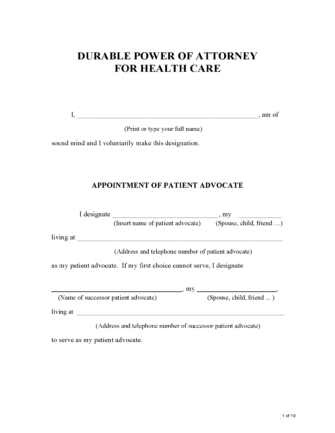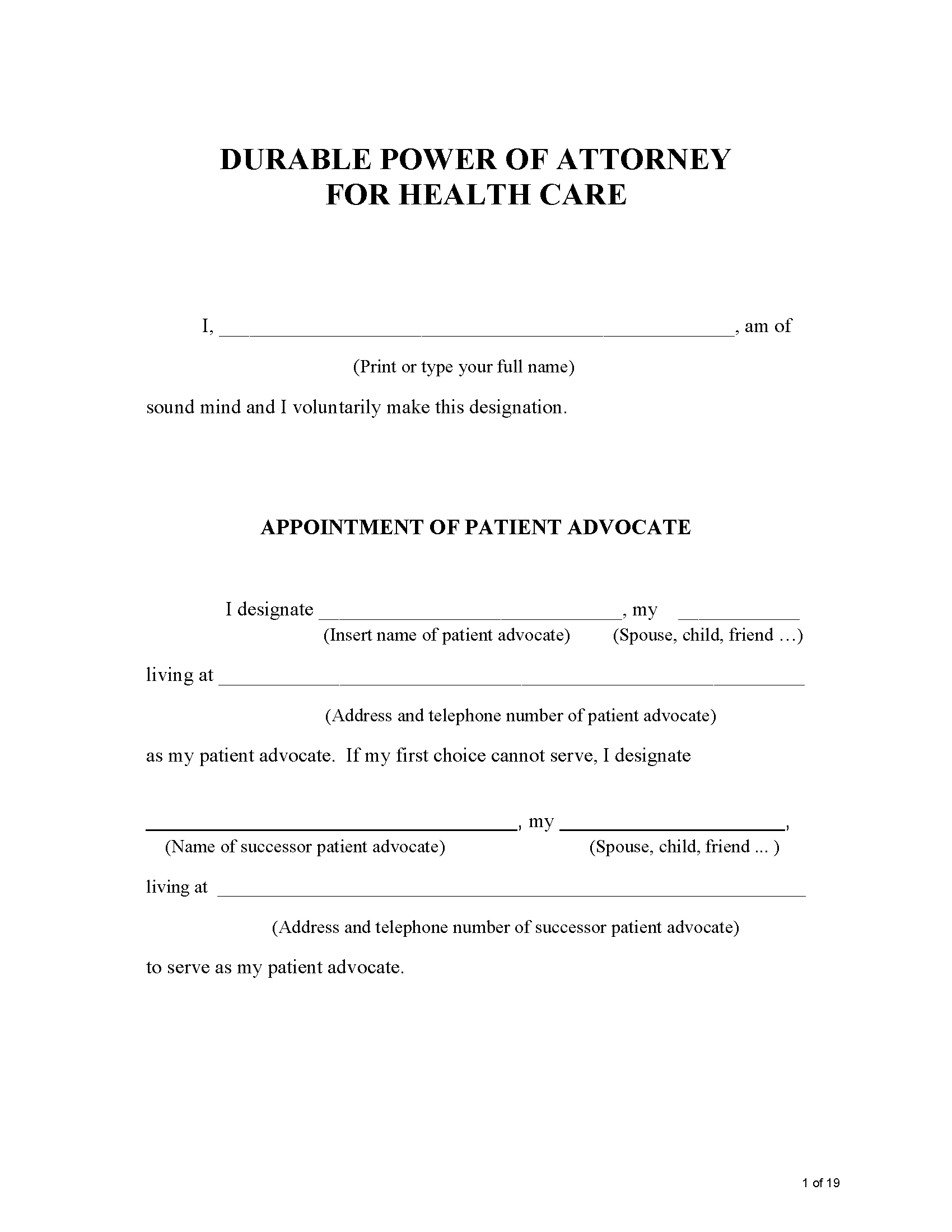Signing Requirements
A durable power of attorney to appoint a health care agent must be signed by the principal and two witnesses.[1]
The witnesses cannot be:
- The principal’s spouse, parent, child, grandchild, sibling, heir, or devisee.
- The principal’s physician or health care agent.
- An employee of the principal’s life/health insurance provider, health care facility, or home for the aged.
In Michigan, there are no statutory requirements for signing the living will portion of an advance directive.
Advance Directive (Preview)
Revocation
The appointment of a health care agent can be revoked by any of the following[2]:
- Death of principal
- Probate court order
- Agent’s resignation or removal (unless a successor agent is named)
- Principal’s communication of intent to revoke
- Provision for revocation
- Divorce, separation, or annulment (if the spouse was the health care agent)

